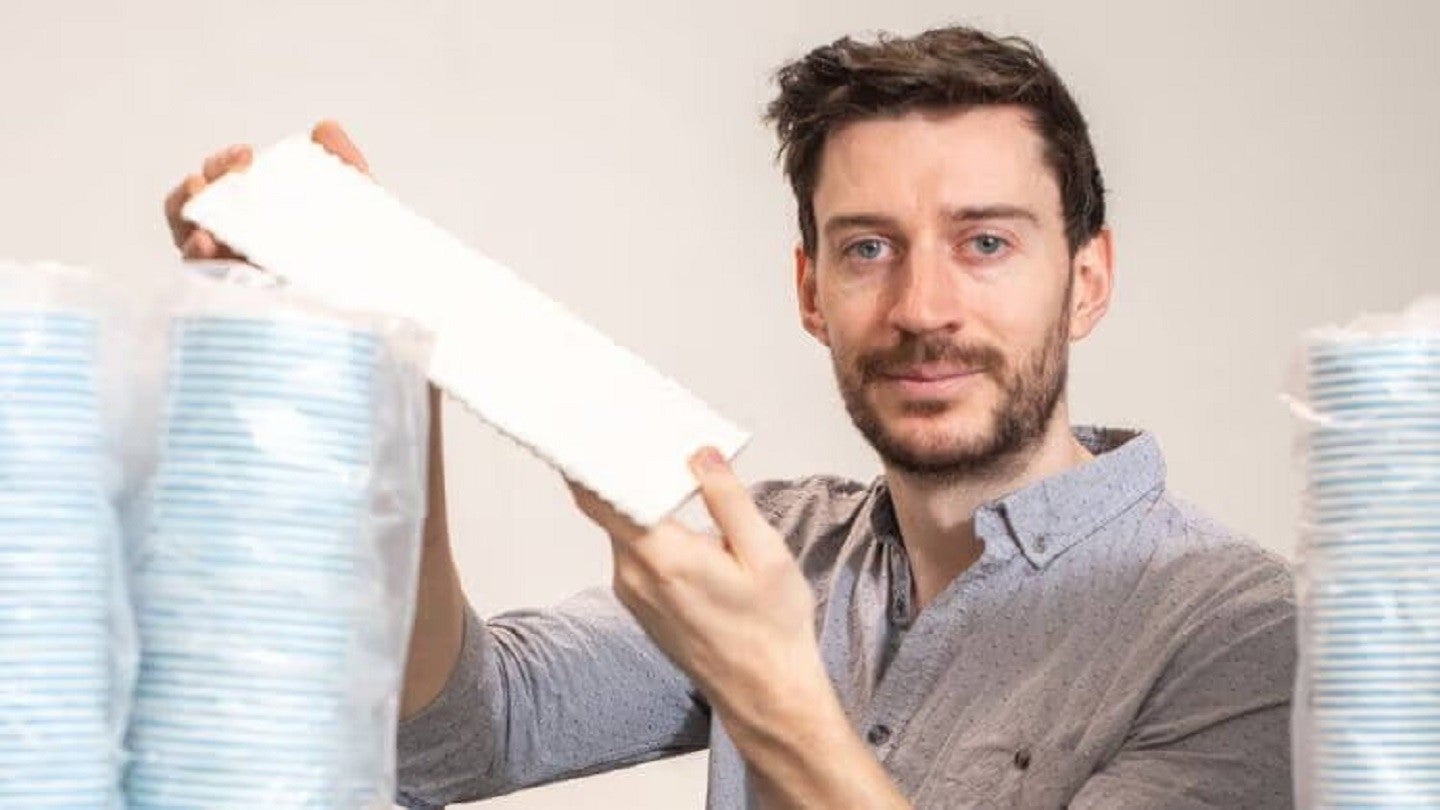
Researchers at the University of Southern Queensland are working on an initiative to recycle single-use coffee cups.
In Australia, an estimated one billion disposable coffee cups are used annually. A plastic coating in these cups prevents them from being recycled, thereby often ending up in landfill.

Discover B2B Marketing That Performs
Combine business intelligence and editorial excellence to reach engaged professionals across 36 leading media platforms.
To address this issue, as part of the university’s Centre for Future Materials NO WASTE team, researcher Dr Matt Flynn and his colleagues are designing structural materials from single-use cups, including panels and boards.
Dr Flynn said: “A lot of people would say these cups are recyclable, and technically they are, but it requires infrastructure that can only be found in a few places worldwide. By shredding these cups and then pressing them, we have been able to make a material similar to a particle board, with the plastic coating acting as an adhesive.
“We are also making sure that the method we are developing is easy and inexpensive, lending itself to the set up of a processing facility.”
The university’s research team has partnered with Talon Technology’s CEO Geoff Germon to help design a product using this new material.

US Tariffs are shifting - will you react or anticipate?
Don’t let policy changes catch you off guard. Stay proactive with real-time data and expert analysis.
By GlobalDataGermon said: “The aim is to create a show-and-tell part using the coffee cup material that is more than a flat panel.”
Under this partnership, the first product to be produced will be a platter, which will then serve as an initial prototype and highlight the material’s versatility to interested parties.
First launched by student Alexandra Sage, who was originally looking at the possible business incentives of recycling, the project was then joined in 2022 by Dr Flynn, who with his chemistry background is helping to create materials that will have real-world applications.
Dr Flynn added: “We are hoping to create a simple process which will save these cups from going into landfill. It will also mean that regional areas won’t have to send this waste to Brisbane to be processed, it can be done locally, and by reusing the end product, the process will be economically viable.”
Last month, scientists at the Chinese University of Hong Kong created another potential solution to help address the mounting problem of plastic waste in landfills.





